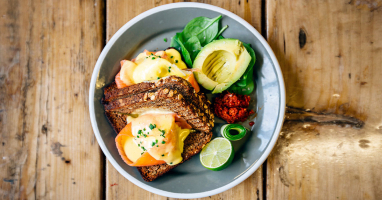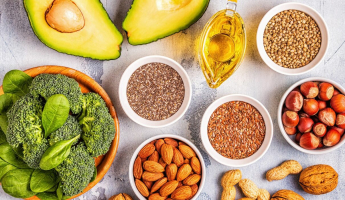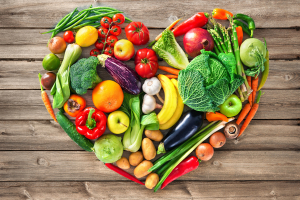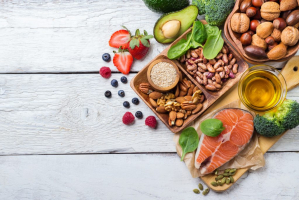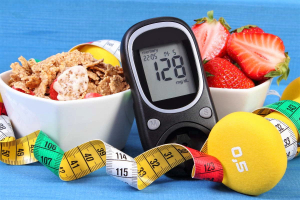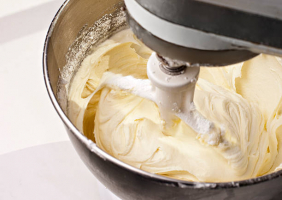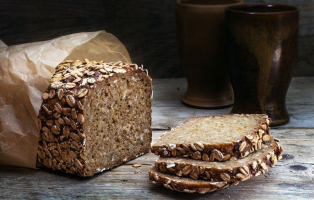Top 10 Tips to Lower Cholesterol with Your Diet
Your chance of developing heart disease and having a heart attack is increased by high cholesterol. Your cholesterol may be improved by medications. However, ... read more...if you'd prefer to lower your cholesterol by changing your lifestyle first, try these helpful diet changes that can lower your cholesterol!
-
Large amounts of soluble fiber can be found in fruits and vegetables, whole grains, flax, apples, and legumes. Soluble fiber cannot be broken down by human enzymes; as a result, it passes through your digestive tract, absorbing water and forming a thick paste.
Soluble fiber absorbs bile, a fluid your liver produces to help in the digestion of fats, as it moves through your body. The fiber as well as any attached bile are eventually eliminated in your stool. Because cholesterol is a component of bile, your liver removes cholesterol from your bloodstream to produce more bile, which naturally reduces your cholesterol levels. In as little as four weeks, regular soluble fiber consumption is linked to a 5–10% decrease in both total cholesterol and "bad" LDL cholesterol. Although eating 5 to 10 grams of fiber daily is advised for the best cholesterol-lowering results, studies have shown that 3 grams per day can also be beneficial.

Eat Foods Rich in Soluble Fiber 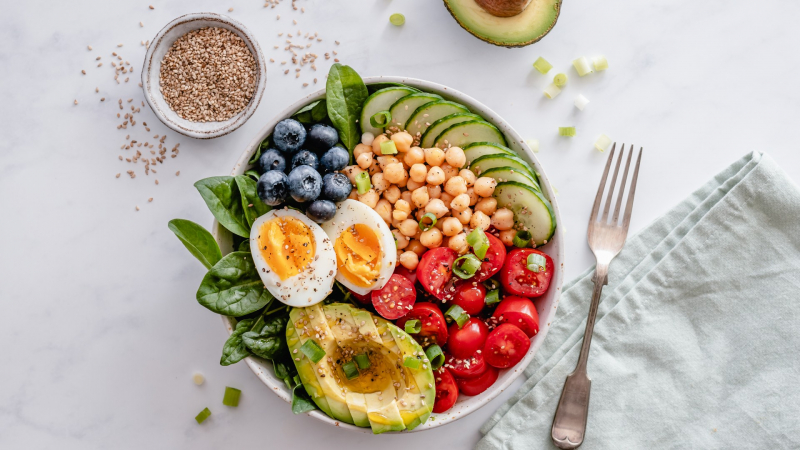
Eat Foods Rich in Soluble Fiber -
Low LDL cholesterol levels can easily be achieved by eating more fruits and vegetables. According to studies, those who eat at least four servings of fruits and vegetables daily have LDL cholesterol levels that are around 6% lower than those who eat less than two servings.
Antioxidants, which prevent LDL cholesterol from oxidizing and forming plaque in your arteries, are also high in fruits and vegetables. Your risk of heart disease can be decreased by these cholesterol-lowering and antioxidant effects working together. According to research, those who consume the most fruits and vegetables over the course of a decade had a 17% lower chance of developing heart disease than those who consume the least. Look for colorful fruits and vegetables, such as berries, oranges, apples, yams, broccoli, spinach, and bell peppers. Naturally cholesterol-free and low-fat, fruits and vegetables are the foundation of a good diet.
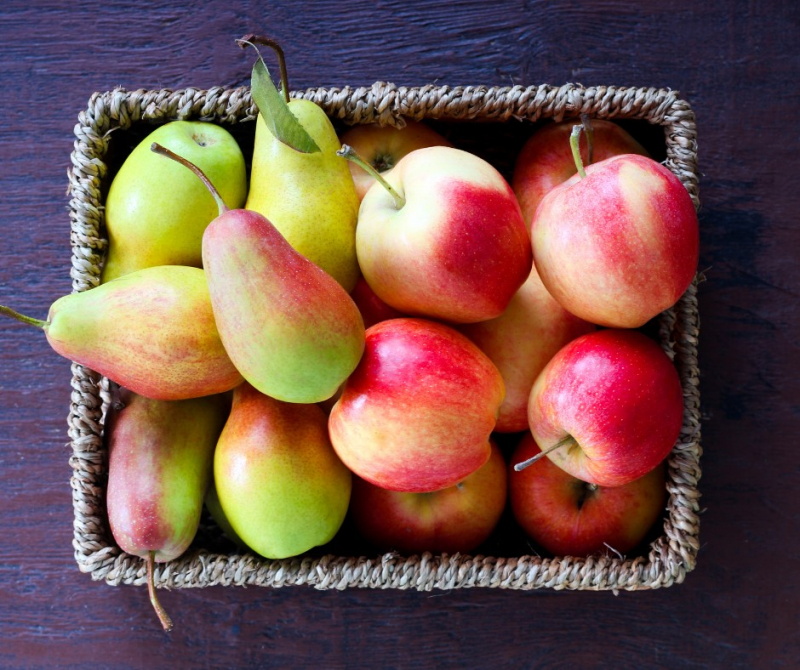
Enjoy Lots of Fruits and Vegetables 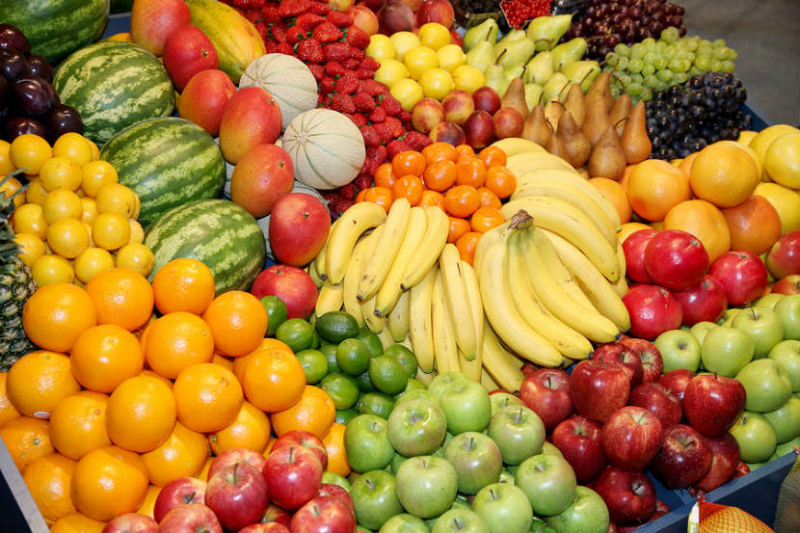
Enjoy Lots of Fruits and Vegetables -
Spices and herbs are nutritious powerhouses loaded with antioxidants, vitamins, and minerals. According to human research, garlic, turmeric, and ginger are particularly efficient at lowering cholesterol when consumed frequently.
In fact, eating just one clove of garlic daily for three months will reduce total cholesterol by 9%. Herbs and spices not only lower cholesterol but also have antioxidants that stop LDL cholesterol from oxidizing, lessening plaque formation in your arteries. Even though they are not frequently consumed in large quantities, herbs and spices can contribute considerably to the daily intake of antioxidants. Some of the highest antioxidant concentrations can be found in dried oregano, sage, mint, thyme, clove, allspice, and cinnamon, as well as in fresh oregano, marjoram, dill, and cilantro.
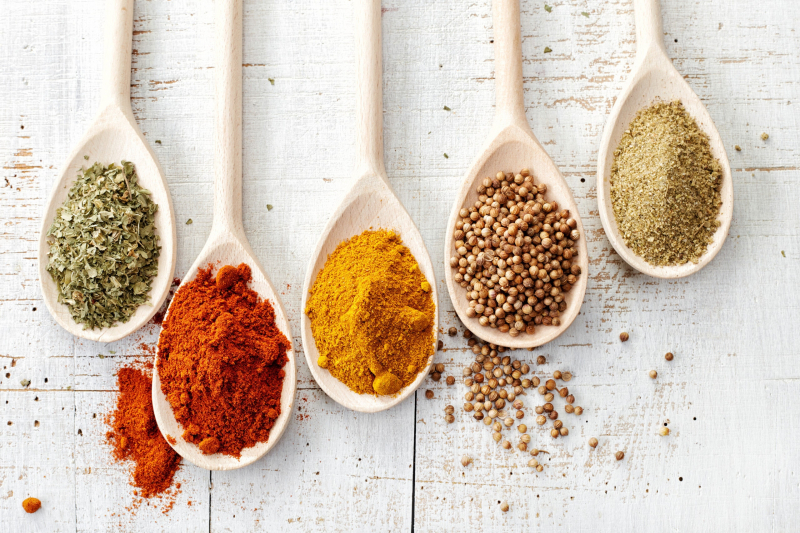
Cook with Herbs and Spices 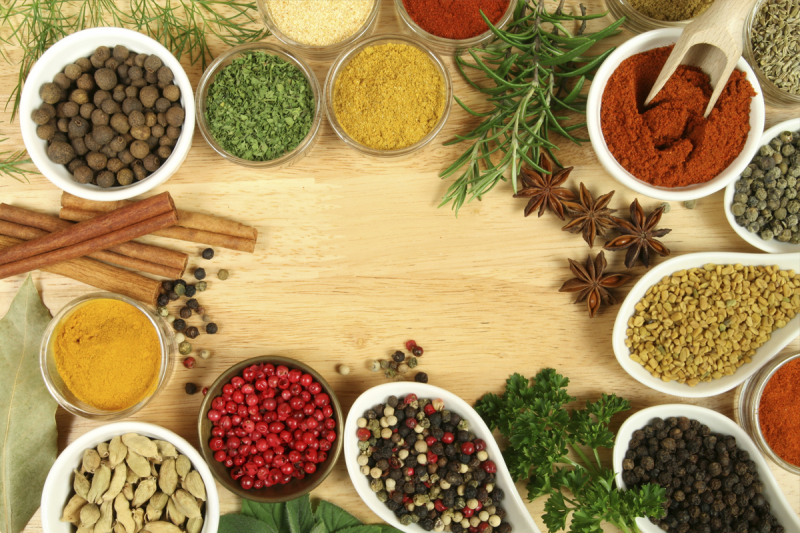
Cook with Herbs and Spices -
Saturated and unsaturated fats are the two main types of fat found in food. Because they improve cholesterol, help to reduce inflammation (a risk factor for heart disease), and lower the overall risk of developing heart disease, unsaturated fats are regarded as the healthiest fats. Plant-based foods are the main source of unsaturated fats.
In just eight weeks, total cholesterol can be lowered by 9% and "bad" LDL cholesterol by 11% by changing to an unsaturated fat diet that replaces the majority of your saturated fats. More thorough research has also shown that those who consume more unsaturated fats and fewer saturated fats over the long term likely to have lower cholesterol levels. Eating foods like avocados, olives, fatty fish, and nuts on a daily basis is beneficial because they are packed with heart-healthy unsaturated fats.
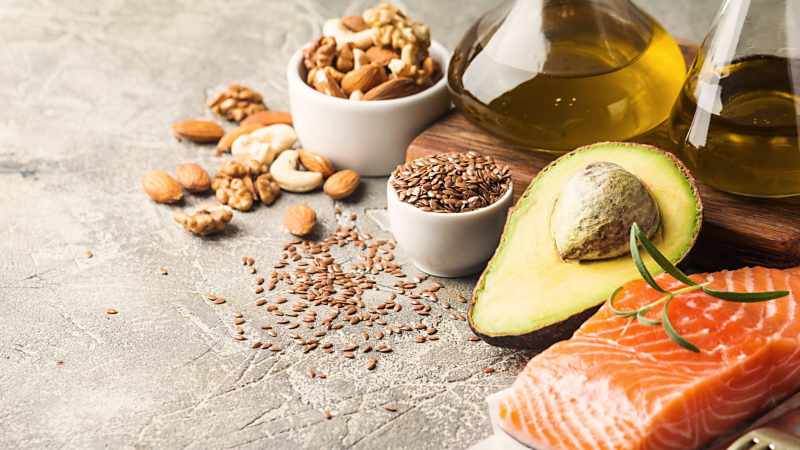
Eat a Variety of Unsaturated Fats 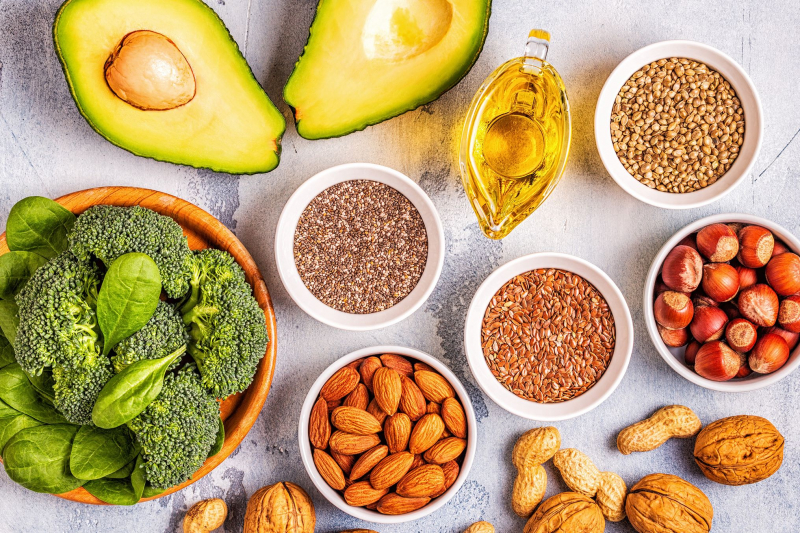
Eat a Variety of Unsaturated Fats -
Although red meat and dairy products naturally contain trans fats, processed foods and the artificial trans fat used in many restaurants are the main sources for most people. Unsaturated fats, such as vegetable oils, are hydrogenated, which is the process of adding hydrogen to change the structure of the fats and allow them to solidify at room temperature.
Because they are less expensive than natural saturated fats, restaurants and food manufacturers frequently use trans fats. But solid evidence suggests that consuming artificial trans fats raises "bad" LDL cholesterol, lowers "good" HDL cholesterol, and is associated with a 23% increased risk of heart disease. In ingredient lists, be cautious of the term "partially hydrogenated". The term actually means that trans fats are present in the food, so they should be avoided. Artificial trans fats are no longer allowed to be used in restaurants or processed foods sold in the US as of June 2018, making it much simpler to stay away from them. Additionally, LDL cholesterol can be increased by naturally occurring trans fats present in dairy and meat products. However, they are generally not seen as causing a serious health danger because they are present in such little amounts.
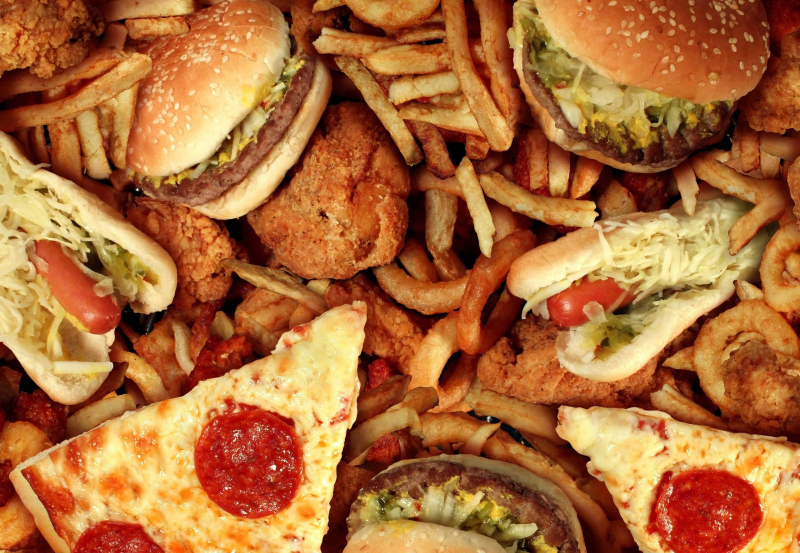
Avoid Artificial Trans Fats 
Avoid Artificial Trans Fats -
Not simply saturated and trans fats can cause cholesterol levels to increase. Eating an excessive amount of added sugars has the same effect. In just two weeks, LDL cholesterol increased by 17% in adults who got 25% of their calories from drinks made with high-fructose corn syrup, according to one study.
What's more alarming is that fructose increases the amount of small, dense oxidized LDL cholesterol particles that are linked to heart disease. According to studies, 10% of Americans consumed added sugars in excess of 25% of their daily calories between 2005 and 2010. These people had a nearly threefold increased risk of dying from heart disease over the course of 14-year research compared to those who consumed less than 10% of their calories from added sugars. Women and children should limit their intake of added sugar to no more than 100 calories (25 g) per day, while men should limit their intake to no more than 150 calories (37.5 g) per day.
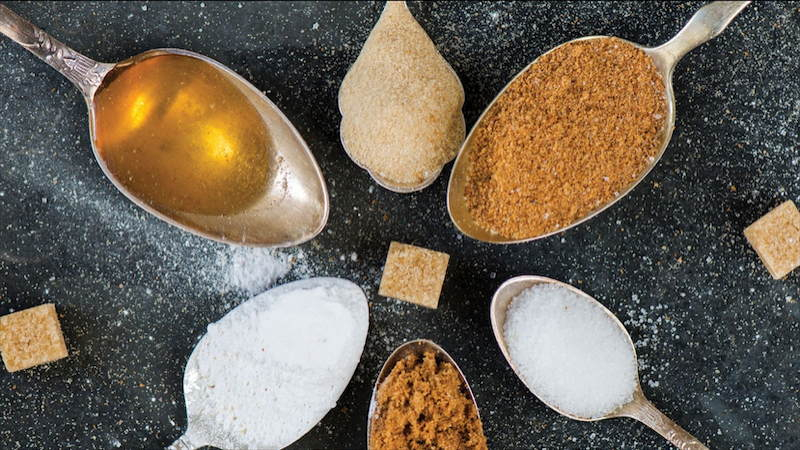
Eat Fewer Added Sugars 
Eat Fewer Added Sugars -
A Mediterranean-style diet is one of the simplest methods to make the mentioned lifestyle changes. The majority of dairy products and red meat are avoided in Mediterranean diets, which are also high in olive oil, fruits, vegetables, nuts, whole grains, and fish. With meals, moderate alcohol use is common, typically in the form of red wine.
This diet is regarded as being particularly heart-healthy since it contains numerous foods that lower cholesterol while avoiding many things that raise it. Studies have demonstrated that sticking to a Mediterranean-style diet for at least three months lowers LDL cholesterol by an average of 8.9 mg per deciliter (dL). When followed for at least four years, it also lowers the risk of death by up to 47% and the risk of heart disease by up to 52%.

Enjoy a Mediterranean-Style Diet 
Enjoy a Mediterranean-Style Diet -
Protein-rich soybeans also have plant-based chemicals called isoflavones, which resemble estrogen in structure. According to research, soy protein and isoflavones have potent cholesterol-lowering properties and can lower your chance of developing heart disease.
Eating soy-based foods can be good for you because soy-based foods contain less saturated fat than meat does and also provide other beneficial nutrients, such as good fats (monounsaturated fats), vitamins, minerals and fiber. In fact, consuming soy on a daily basis for at least a month can raise "good" HDL cholesterol by 1.4 mg/dL and lower "bad" LDL cholesterol by about 4 mg/dL. In comparison to processed soy protein extracts or supplements, less processed soy products like soybeans or soy milk are most likely more effective at lowering cholesterol.
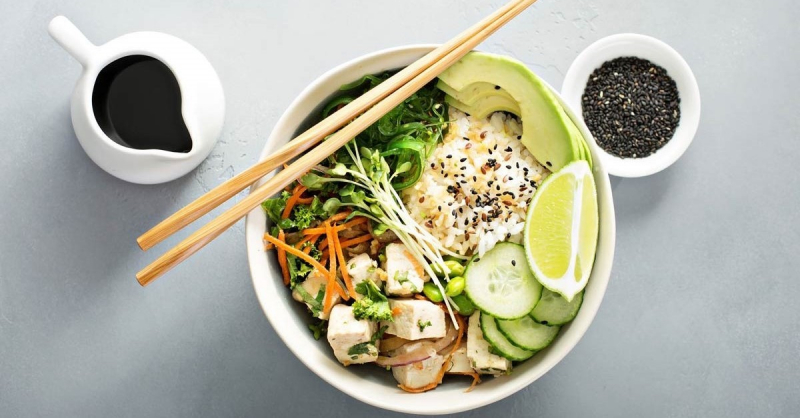
Eat More Soy 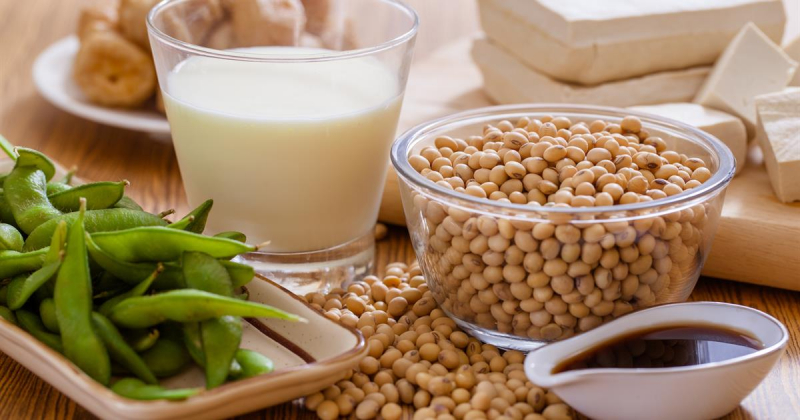
Eat More Soy -
Tea is the second most popular beverage in the world behind water, and numerous studies have demonstrated that it has a number of health advantages. Numerous studies have demonstrated that tea provides a variety of health benefits, including lowering cholesterol. The Camellia sinensis plant's leaves are heated and dried to produce green tea. The tea leaves can be ground into powder and mixed with liquid to make matcha green tea, or they can be steeped in water to make brewed tea.
Green tea consumption for at least two weeks lowers total cholesterol by around 7 mg/dL and "bad" LDL cholesterol by about 2 mg/dL, according to a study of 14 research. Green tea may lower cholesterol, according to animal research, by decreasing the liver's production of LDL and improving the blood's removal of it. Additionally, green tea contains many antioxidants that can stop LDL cholesterol from oxidizing and forming plaque in your arteries. The best protection against heart disease is to consume at least four cups daily, but even one cup can almost half your chance of having a heart attack.

Drink Green Tea 
Drink Green Tea -
If you've begun working out and eating better because you're concerned about your cholesterol level, you might be wondering if a dietary supplement can help. Be sure to tell your doctor if you take any type of dietary supplement because some can interact with medications you may be taking.
Some supplements, in addition to a healthy diet, can naturally lower cholesterol levels including:
- Niacin: Over the course of a year, niacin supplements of 1-6 grams per day can reduce LDL cholesterol levels by up to 19%. However, because of its potential negative effects, it should only be used as directed by a doctor.
- Psyllium husk: Psyllium husk, which is high in soluble fiber, can be eaten daily to decrease cholesterol when combined with water. Psyllium husk is a supplement to medications used to decrease cholesterol, according to research.
- L-carnitine: For people who have diabetes, L-carnitine lowers LDL levels and lowers oxidation. Five times more than a placebo, taking 2 g each day for three months can lessen oxidized cholesterol levels.
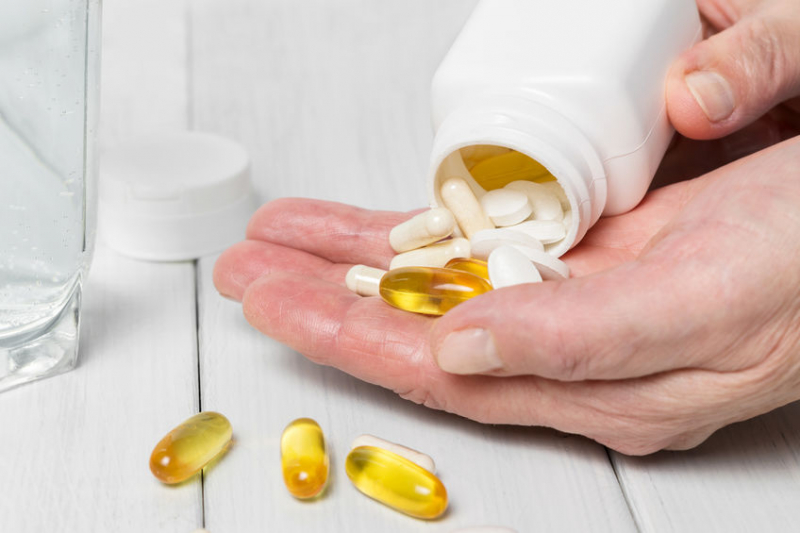
Try Cholesterol-Lowering Supplements 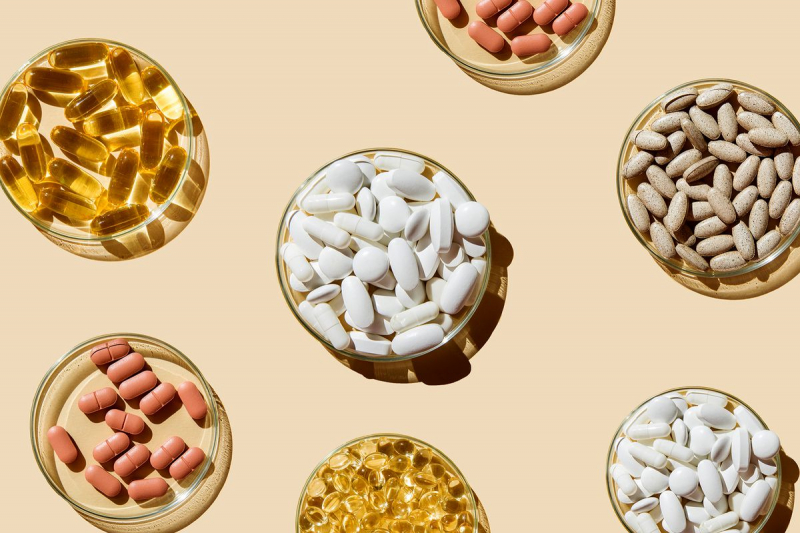
Try Cholesterol-Lowering Supplements













